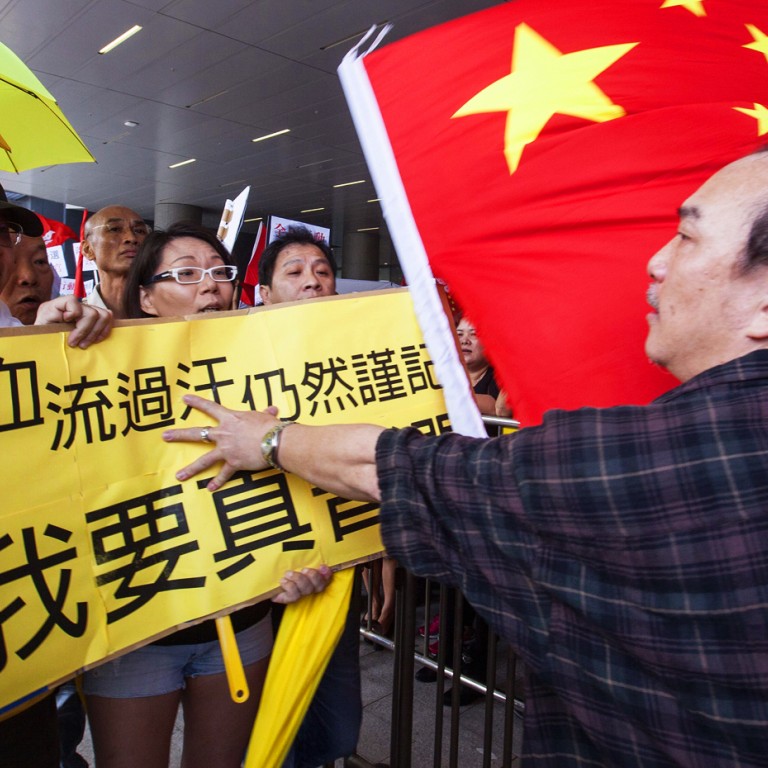
Public opinion for and against 2017 electoral reform too close to call, survey shows
Public favours reform blueprint - just - but the gap has narrowed sharply and margin of error in the survey now wipes out any difference
Public opinion on the plans for electoral reform is effectively even as any difference in the rolling polls conducted by three of the city's universities falls within the latest survey's margin of error.

The gap narrowed to 2 percentage points, while the margin of error was plus or minus 3 percentage points.
In the first survey - conducted by the University of Hong Kong, Chinese University and Polytechnic University - the level of support was 46.7 per cent, with 37.6 per cent against. The gap of 9.1 percentage points widened to 13.8 points by late April.
But that has narrowed since a controversial government blitz to promote the restrictive framework imposed by Beijing.
A pro-Beijing group, the Alliance for Peace and Democracy - which led the anti-Occupy Central movement campaign - has also been under fire. It claims to have gathered more than 360,000 signatures over the weekend in favour of the reform plan, but critics say those who signed did not have to provide proof of identity, meaning they could sign repeatedly or use fake names.
"The more [pro-establishment groups] support the government, the more they are messing things up," said former civil service minister Joseph Wong Wing-ping. "People can see that it is just a rotten political show … when volunteers are not verifying people's identity at all."
Wong also pointed at the Federation of Hong Kong Guangxi Community Organisations, after three schools accused the group of putting a video of students praising the reform plan online without the pupils' consent.
The reform plan, based on a framework set by Beijing, would require aspirants in the 2017 chief executive poll to obtain majority support from a 1,200-strong nominating committee. Only two or three will get to stand in a city-wide vote. The 27 pan-democratic lawmakers have vowed to vote down the package in the Legislative Council.
The Democratic Party's Emily Lau Wai-hing and Civic Party's Alan Leong Kah-kit said the poll showed officials could not ease the political impasse.
But Starry Lee Wai-king, an Executive Council member and chairwoman of the Democratic Alliance for the Betterment and Progress of Hong Kong, said it was normal for polls to fluctuate.
Robert Chow Yung, of the Alliance for Peace and Democracy, said: "To me, it's really like a football match. People might be saying, 'I have won two corners', but I'm waiting to see if any goal will be scored."

